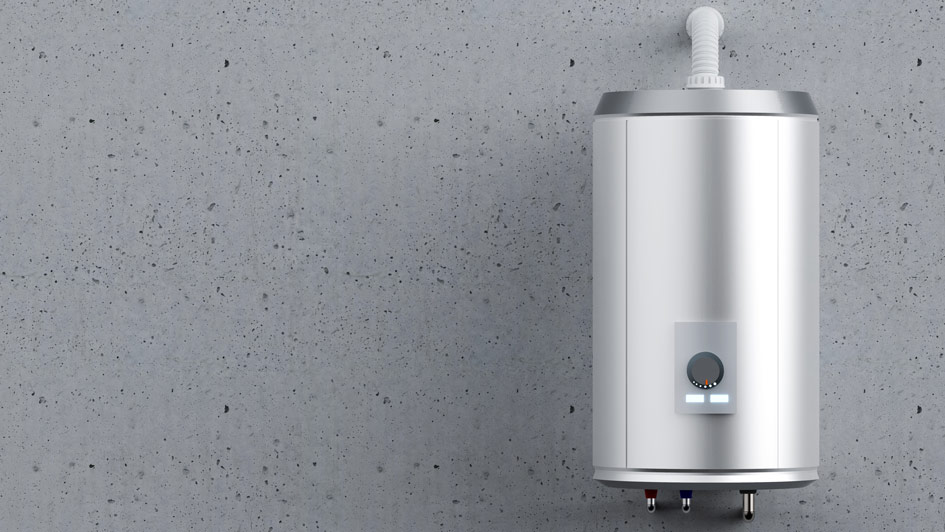
You might already have “smart” devices and appliances installed throughout your home without knowing it. If you can access your thermostat from a smartphone or flip your lights on and off while you’re on the other side of town – those are typical smart devices.
Even plumbing products are increasingly “smart” these days. Smart plumbing products can include smart water heaters, smart leak detectors, and smart water monitors.
Installing smart plumbing devices and appliances can establish an extra layer of convenience and security to your home, as well as reduce your daily water usage and monthly water bills. Continue below to learn more about the advantages of installing smart plumbing products. And if you’re looking into adding one to your plumbing system, be sure you have the help of a trusted plumber in Omaha.
Chances are you already have “smart” devices and appliances installed throughout your home without even knowing it. If you can control your thermostat from your smartphone or switch your lights on and off while you’re on the other side of town – those are considered smart devices.
Even plumbing products are increasingly “smart” these days. Smart plumbing products might include smart water heaters, smart leak detectors, and smart water monitors.
Installing smart plumbing devices and appliances can add an extra layer of convenience and safety to your home, as well as reduce your daily water usage and monthly water bills. Continue below to learn more about the benefits of installing smart plumbing products. And if you’re thinking of adding one to your plumbing system, be sure you have the help of a trusted plumber in Omaha.
Smart Leak Detectors
When a pipe breaks or your basement or crawlspace floods thanks to heavy rain, it’s fairly obvious that your home is struggling with a major water leak that can result in severe damage. But some leaks aren’t so obvious. Even small water leaks from appliances or plumbing pipes can accumulate over time, contributing to higher bills and the potential for damage to your home.
That’s where a smart water leak detector can help. Leak detectors are installed in bathrooms, basements, under the kitchen sink, and around water-using appliances. Smart leak detectors track home water usage and alert you through your smartphone if it notices abnormal water usage in your home – which can point to a leak hidden away. They should also notify you if they detect a leak, or a running toilet.
If you’re away from home and your water heater suddenly starts leaking, you’ll be informed right away via your smartphone so you can take appropriate action to get the leak resolved and minimize further damage to your home.
Energy-Saving Smart Water Heaters
Did you know the traditional water heater accounts for about 12% of a family’s energy expenditure, second only to your heating and cooling system? To keep your hot water heater’s energy usage in check, try upgrading to a smart water heater. Smart water heaters come with energy-saving features and remote controls.
So how do smart water heaters differ exactly? Designed with smart technology, a smart water heater can assess your home’s water-usage habits and even estimate usage and make appropriate adjustments. Traditional tank water heaters, for example, must continuously heat water during the day so hot water is available when you need it. With a smart water heater, though, you can turn your water heater off during the workday when you’re gone or when you’re away for work or vacation.
This can save energy, reduce water bills, improve safety, and offer more control over your appliance. While we're talking about control, if you shower at 7 a.m. each day, you can schedule your water heater to turn on at 6:45 so you’ll have hot water on hand. Smart water heaters also inform you of any leaks or system malfunctions using your smartphone. If a leak is detected, for example, the smart water heater should automatically switch off. This minimizes damage to the appliance and your home.
Smart Water Monitor
Most of us probably have little idea how much water we’re using. Smart water monitors are incredibly useful if you’re looking to lower your water consumption and save money on your monthly water bills.
Smart water monitors can save helpful data that indicates how much water you are using in your home or business and how much each appliance or fixture is using. The bulk of water monitors include a web-based interface that helps you to monitor water usage in real-time. This kind of information can help you learn if you have an inefficient toilet that needs to be upgraded, or if someone in your family is frequently taking 30-minute showers in the upstairs bathroom–allowing you to make appropriate adjustments.
Aside from saving money on your water bills, smart water monitors help homeowners lower their carbon footprint to guarantee there is enough water for future generations to come.



